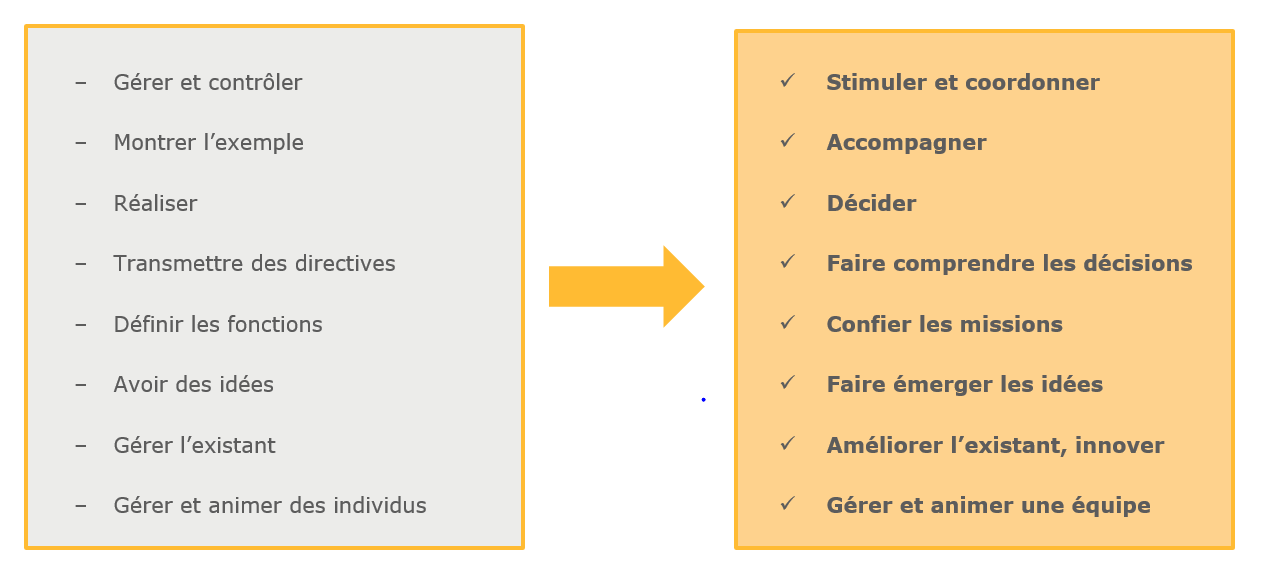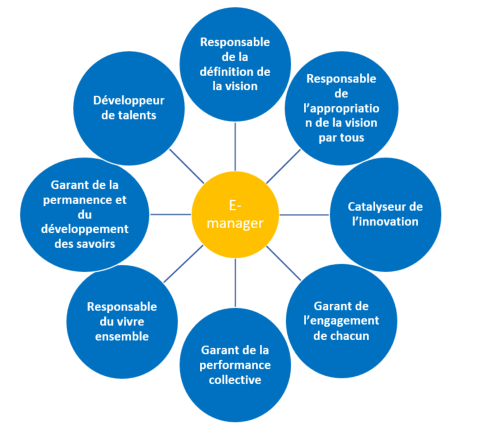- News
THE EVOLUTION OF MANAGEMENT AND LEADERSHIP FACING YOUNG GENERATIONS

26 July 2022

How are the new generations pushing managers to reinvent themselves?
Comment bien coopérer en 2022 ? Passons en revue les attributs de ces jeunes générations avant de voir quel management mettre en place pour optimiser les échanges.
THE YOUNGER GENERATIONS: Y AND NOW ALSO Z IN COMPANIES
Dans le monde d’aujourd’hui où tous les repères traditionnels ont explosé (famille, religion, politique,) les jeunes au travail sont en quête de sens et souhaitent contribuer au futur des organisations quand ils en partagent les valeurs. Les Y et Z ont appris à s’exprimer sur les réseaux sociaux dès leur plus jeune âge. Leur expression libre dans le monde virtuel les a amenés à naturellement développer leur drive et leur leadership. Nés dans un univers digital en friche type « far ouest » ils sont aussi habitué à investir des terres nouvelles et intervenir dans des zones non balisées ce qui induit un rapport au contrôle très distancié et un goût pour l’exploration avancé.
En complément, ces jeunes attendent aussi un feedback régulier (c’est normal si le management n’est pas directif) et souhaitent que leur patron soit d’abord un coach. Conscients de la finitude de l’existence, ils pensent positif et aspirent à pouvoir accéder à un développement rapide de leurs compétences…avant de passer à un autre sujet ! Ambassadeurs de la transformation, les natifs du numérique pensent le monde au travers des outils qu’ils façonnent. Pour eux le droit à l’erreur constitue le pendant nécessaire d’une approche itérative, ou « test and learn ».
Cette autonomie accrue permet aux jeunes d’apprendre plus rapidement et donc d’évoluer aussi plus vite que leurs ainés. Le mouvement s’accélère.
| YESTERDAY | TODAY |
|---|---|
| My salary | My goal |
| My satisfaction | My development |
| My boss | My trainer |
| My annual review | ➡ My everyday conversation |
| My weaknesses | My powers |
| My job | My life |
Les managers et les entreprises doivent s’adapter pour continuer d’attirer les talents nécessaires à l’invention de l’entreprise qui vient.
A NEW MANAGEMENT TO INVENT
Chacun étant plus sachant, pouvant accéder avec facilité à une grande base de connaissance, étant plus agile avec les nouvelles technologies, on attend du management qu’il devienne plus participatif et du manager leader qu’il montre la voie et laisse ses équipes prendre l’initiative.

En résumé, les nouveaux attendus vis-à-vis des managers peuvent se regrouper en 8 rôles et responsabilités ou, de manière moins classique, pourraient se définir comme des missions de leader à la fois gardien et jardinier. Elles ont été regroupées en plusieurs catégories* :
- Leader : A la fois responsable de la définition de la vision, de l’appropriation de cette vision par tous et aussi responsable du vivre ensemble,
- Gardien : de la permanence et du développement des savoirs, de la performance collective et de l’engagement de chacun,
- Jardinier : en étant catalyseur de l’innovation et développeur de talents.

Le manager augmenté du XXI siècle doit développer de nouvelles ressources en étant à la fois sage, humble et dans l’accompagnement du développement personnel de ses équipes. Il doit savoir créer des contextes propices à l’innovation, capitaliser sur la confiance qu’il porte sur les hommes qu’il accompagne en faisant partager sa vision et sa lecture de la culture de l’entreprise.
Pour travailler dans ce sens il dispose notamment d’outils classiques qui s’appuient souvent sur des outils présentiel (séminaires professionnels, conventions, réunions internes, actions de coaching d’équipe ou individuel, séances de brainstorming).
En parallèle les outils numériques viennent compléter de manière dynamique les usages plus traditionnels du management, permettant plus d’interactivité, de réactivité et de partage.
*article inspiré de « E-Management : Comment la révolution numérique transforme le management », ouvrage écrit par Isabelle Reyre et Marc Lippa, Edition Dunod 2015, en partenariat avec l’Association Nationale des DRH (ANDRH)

Founder of Arctus, Partner
Founder and director of Arctus, Isabelle is also an author, speaker and instigator, since 2007, of the biannual observatories at the Hybrid Work and Digital Management Observatory, the Intranet & Digital Working Observatory and the Creativity Observatory. She is a director and an active member of the AFCI, the French Association of Internal Communication Professionals.


